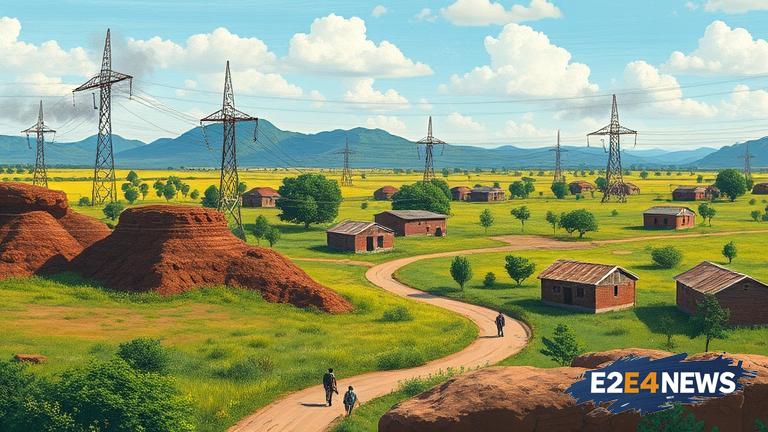The African Caucus 2025 event, held recently, brought together leaders and experts from across the continent to discuss the potential of digital and green infrastructure in driving Africa’s economic growth and development. The event, which took place in a vibrant and dynamic setting, provided a platform for stakeholders to share their experiences, challenges, and successes in implementing digital and green infrastructure projects. One of the key takeaways from the event was the importance of investing in digital infrastructure, such as broadband networks, data centers, and cloud computing, to support the growth of Africa’s digital economy. Experts emphasized that digital infrastructure is critical for enabling e-commerce, digital payments, and other online services that are essential for businesses and individuals to thrive in today’s digital age. Furthermore, the event highlighted the need for green infrastructure, such as renewable energy, green buildings, and sustainable transportation systems, to support Africa’s transition to a low-carbon economy. Green infrastructure is not only essential for reducing carbon emissions and mitigating the impacts of climate change, but also for creating jobs, stimulating economic growth, and improving the quality of life for African citizens. The event also discussed the role of innovation and technology in driving the development of digital and green infrastructure in Africa. Experts noted that innovative technologies, such as the Internet of Things (IoT), artificial intelligence (AI), and blockchain, can help to optimize the performance of digital and green infrastructure, reduce costs, and improve efficiency. Additionally, the event emphasized the importance of public-private partnerships in financing and implementing digital and green infrastructure projects. Governments, private sector companies, and international organizations must work together to mobilize the necessary funds, expertise, and resources to support the development of these critical infrastructure projects. The African Caucus 2025 event also provided a platform for stakeholders to discuss the challenges and obstacles that must be overcome to unlock Africa’s digital and green infrastructure potential. These challenges include inadequate funding, lack of regulatory frameworks, and limited capacity and expertise. To address these challenges, experts recommended that governments and private sector companies must work together to develop and implement policies and regulations that support the development of digital and green infrastructure. Moreover, there is a need for capacity building and training programs to equip African professionals with the necessary skills and expertise to design, implement, and manage digital and green infrastructure projects. The event concluded with a call to action, urging stakeholders to work together to unlock Africa’s digital and green infrastructure potential and drive the continent’s economic growth and development. In the coming years, Africa is expected to experience rapid economic growth and urbanization, which will drive the demand for digital and green infrastructure. To meet this demand, governments, private sector companies, and international organizations must invest in digital and green infrastructure projects that support the growth of Africa’s digital economy and transition to a low-carbon economy. The African Caucus 2025 event provided a timely and important platform for stakeholders to discuss the opportunities and challenges of digital and green infrastructure development in Africa. As the continent continues to grow and develop, it is essential that stakeholders work together to unlock Africa’s digital and green infrastructure potential and drive economic growth, job creation, and improved quality of life for African citizens. The event also highlighted the importance of regional cooperation and integration in driving the development of digital and green infrastructure in Africa. Regional organizations, such as the African Union, can play a critical role in promoting regional cooperation and integration, and in supporting the development of digital and green infrastructure projects that benefit multiple countries. In conclusion, the African Caucus 2025 event was a significant step forward in promoting the development of digital and green infrastructure in Africa. The event provided a platform for stakeholders to share their experiences, challenges, and successes, and to discuss the opportunities and challenges of digital and green infrastructure development in Africa. As the continent continues to grow and develop, it is essential that stakeholders work together to unlock Africa’s digital and green infrastructure potential and drive economic growth, job creation, and improved quality of life for African citizens. The future of Africa’s digital and green infrastructure development looks promising, with many opportunities for growth, innovation, and investment. However, there are also challenges that must be addressed, including inadequate funding, lack of regulatory frameworks, and limited capacity and expertise. To overcome these challenges, stakeholders must work together to develop and implement policies and regulations that support the development of digital and green infrastructure, and to invest in capacity building and training programs that equip African professionals with the necessary skills and expertise. With the right policies, regulations, and investments in place, Africa can unlock its digital and green infrastructure potential and drive economic growth, job creation, and improved quality of life for African citizens.





